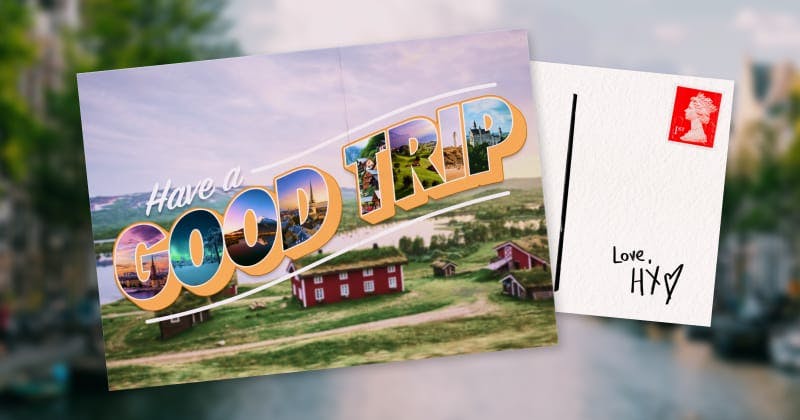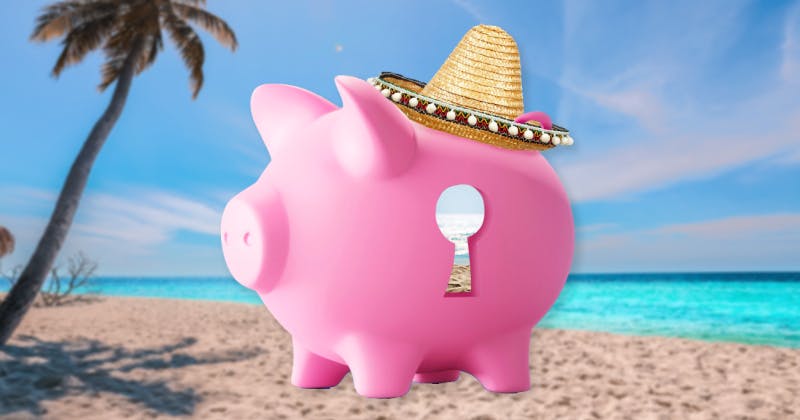
Tunisia Travel Guide
From Mediterranean resorts to the mysteries of the Sahara Desert, Tunisia is a fascinating mix of beach resorts and North African culture.
What you'll find in this guide:
Top things to do in Tunisia
Practical Information
LGBTQI+ travel in Tunisia
Tunisia for female travellers
Weather in Tunisia
Getting to Tunisia
Getting around Tunisia
GMT +1
Tunisian dinar
Arabic
Type C and E
2hr 53
Practical Info
Important things to know before you visit Tunisia
Tunisia ranks 145th on our Good Trip Index – our guide to travelling ethically, sustainably and well. To help make travelling responsibly less of a hassle, we pulled together seven of the definitive country-level indices that cover the main ethical issues UK holidaymakers told us were important to them when deciding where to go on holiday, including women's rights, LGBTQI+ rights and quality of life.
Since 2021 the Tunisian government has been doubling down on efforts to suppress political opposition, including dissolving parliament in 2022. This has resulted in some restrictions on human rights in the country, including free speech, women’s rights and the right to peaceful protest. It’s worth being aware of some of these rules if you’re planning to travel to Tunisia so you can avoid any unwanted attention from the authorities.

Tunisia ranks 145th on the Good Trip Index
This score is calculated based on Sustainability, Human Rights, Women's Rights, Press Freedom, Quality of Life, LGBTQI+ Rights and Animal welfare
Find out moreDress modestly outside of hotels and resorts. If you’re visiting religious sites or more remote areas make sure your knees and shoulders are covered – particularly if you’re a woman. Beachwear is fine on the coastal resorts.
Carry photo ID with you at all times. This can be a photocopy of your passport if you’d rather not carry the real thing around with you. Be prepared to show it to security officials when asked.
Avoid public displays of affection. Sex outside of marriage is illegal and as such unmarried couples aren’t allowed to share a room. It probably won’t be a problem if you’re staying in a western-style hotel but to be on the safe side just refer to each other as husband or wife when checking in. If you’re not staying in a tourist resort then consider wearing gold rings on your ring finger . Homosexuality is straight-up illegal in Tunisia so while public displays are taboo even for heterosexual couples, same-sex couples can find themselves in prison for it.
Don’t take photos of embassies or political, military and government buildings. There should be signs around telling you when it’s inappropriate to take photos, so keep an eye out for those.
You can’t import or export Tunisian currency. This is worth knowing if you tend to bring cash when you go on holiday. You’ll have to take cash in your local currency and exchange it when you get there. It’s important that you declare how much cash you’re bringing into the country as well otherwise it will be confiscated. Keep all your receipts as well, just in case.
Culture and etiquette
Religion
The biggest religion in Tunisia is Sunni Islam – about 98% of the population. There's a small minority of Christians too, usually in small European communities.
Tipping
Do you need to tip in Tunisia? Tipping is expected in Tunisia, about 10%. You should also tip if you're staying in an all-inclusive resort. A few dinar a day to the bartender is fine, or leave an envelope at the end of your trip.
Smoking
Smoking is illegal in most public places including hotels and public transport. This isn't always enforced and you may see a lot of people smoking where they probably shouldn't.
Jabs, visas and other advice
For up-to-date advice on jabs, visas and other foreign advice, we recommend following the government's website.
Emergency numbers
197 for police. 198 for fire. 190 for ambulance.
Let's take the hassle out of your holiday.
Sign up to our mailing list for more travel advice plus exclusive money-saving offers on your holiday extras!
No need to worry about your data, we take your privacy seriously.
Is Tunisia safe for LGBTQI+ travellers?
Short answer? No.
It’s illegal to be gay in Tunisia and consensual same-sex relations are punishable by up to three years in prison. This is enforced and according to a report by Damj, a Tunisian civil rights group, more than 60 arrests were made in 2022. It’s also been reported that people have been detained and questioned about their sexuality based purely on their appearance.
That being said, there is a queer subculture in Tunisia if you know where to look. And if you decide you want to visit the country just be prepared to hide certain aspects of yourself and make sure that you put your own safety first. If you’d rather be your genuine self while away, take a look at some of the best places in the world for LGBTQ+ travel.
Is Tunisia safe for women?
Though equal rights for men and women is enshrined in Tunisian law, you’ll find that this ‘equality’ doesn’t tend to favour women. Some laws actively discriminate against women, for example women are only entitled to inherit half of what their brothers are.
The country did adopt a law in 2017 designed to stop violence against women, however an amendment to Tunisian electoral law makes it practically impossible for there to be equal gender representation in parliament. This makes it difficult for lawmakers to enforce it.
Despite all this, travelling in Tunisia as a woman, either solo or in a group, is safe. Relatively speaking. Most locals tend to be quite friendly and welcoming, and attention from men is quite rare as they aren’t likely to associate with women before they get married.
If unwanted attention does come your way a polite ‘no thank you’ should do the trick. And remember to dress conservatively when outside of the tourist resorts – a light scarf covering your hair and a pair of sunglasses can do wonders for avoiding unwanted gazes and eye contact.
What's the weather like in Tunisia
Tunisia has a Mediterranean climate, meaning long, hot summers and short, mild winters. The hottest time of year is July when the temperature averages around 30ºC, but it gets hotter the further south you go. Sea breezes temper the heat in the coastal resorts of the north and east, which is where most tourists stay. But if 30+ degrees just seems too hot then visit in spring or autumn instead, where the temperatures sit comfortably at around 25ºC.
Getting to Tunisia
It takes about three hours to fly from the UK to Enfidha, which is within easy reach of Sousse and Hammamet – two of Tunisia’s most popular resorts.
Tunisia’s Mediterranean coast is also popular for cruise itineraries, with stops in historic Monastir and the capital city of Tunis.
Getting around Tunisia
The popular way of getting around Tunisia is by louage. Louages are essentially minibuses with set destinations but no set schedule – they leave when they’re full. If that sounds a bit chaotic it’s because it is. You have to find a louage that’s going your way, usually by asking the driver, and then wait for it to fill up and leave. If you’re lucky enough you’ll get the front passenger seat which has its own seatbelt! They tend to be cheap and fast but there are no stops – so make sure you’re on the right one before it leaves!
If you’d prefer your transport to run to a timetable then you’re in luck, buses and trains connect the towns and cities together. Just grab your tickets online in advance.
If you choose to drive in Tunisia make sure you pick a car that’s suitable for your needs – if you think your journey will take you near or through the desert then go for something with four-wheel drive. There are also a lot of police and military checkpoints – make sure you approach slowly and have photo ID to show.
Top






















